Domestic Workers Help Others Even As They Face An Uncertain Future Themselves
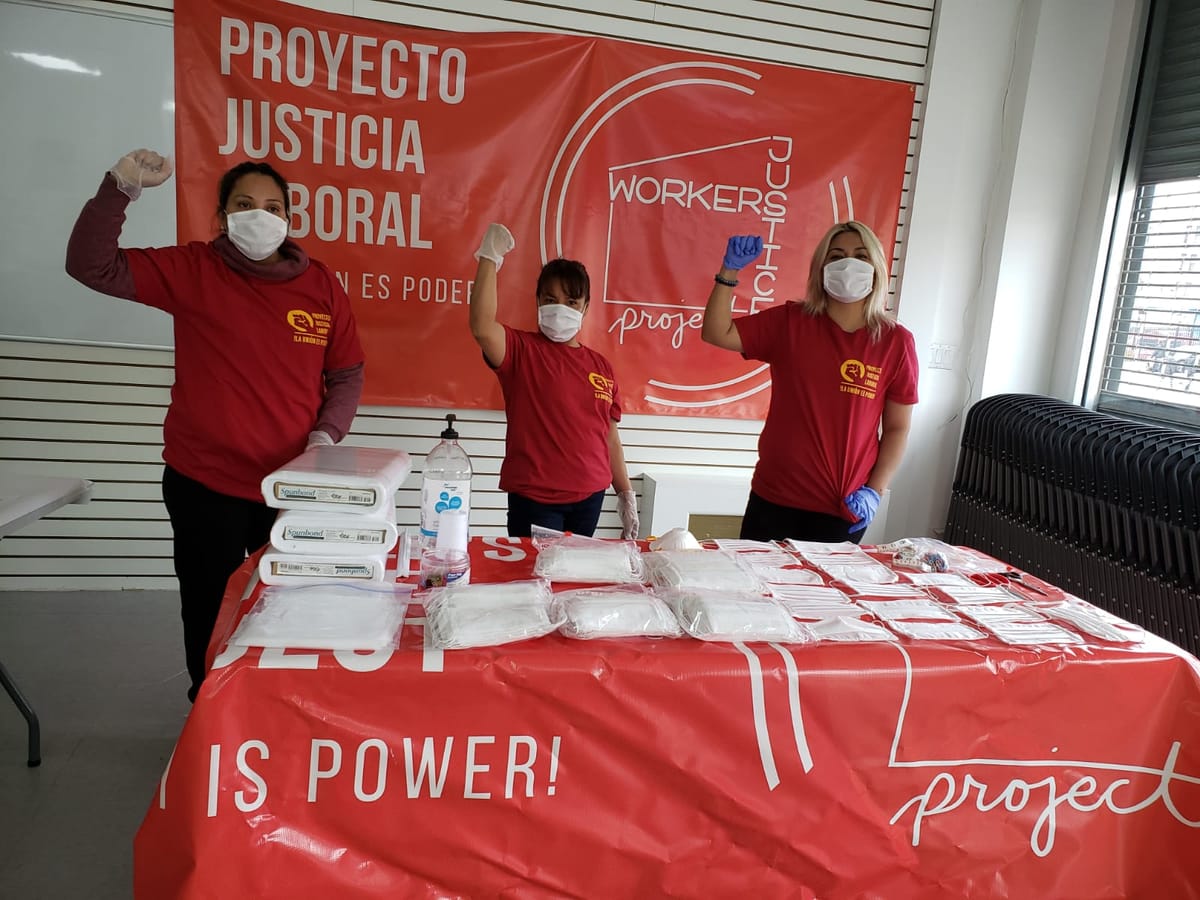
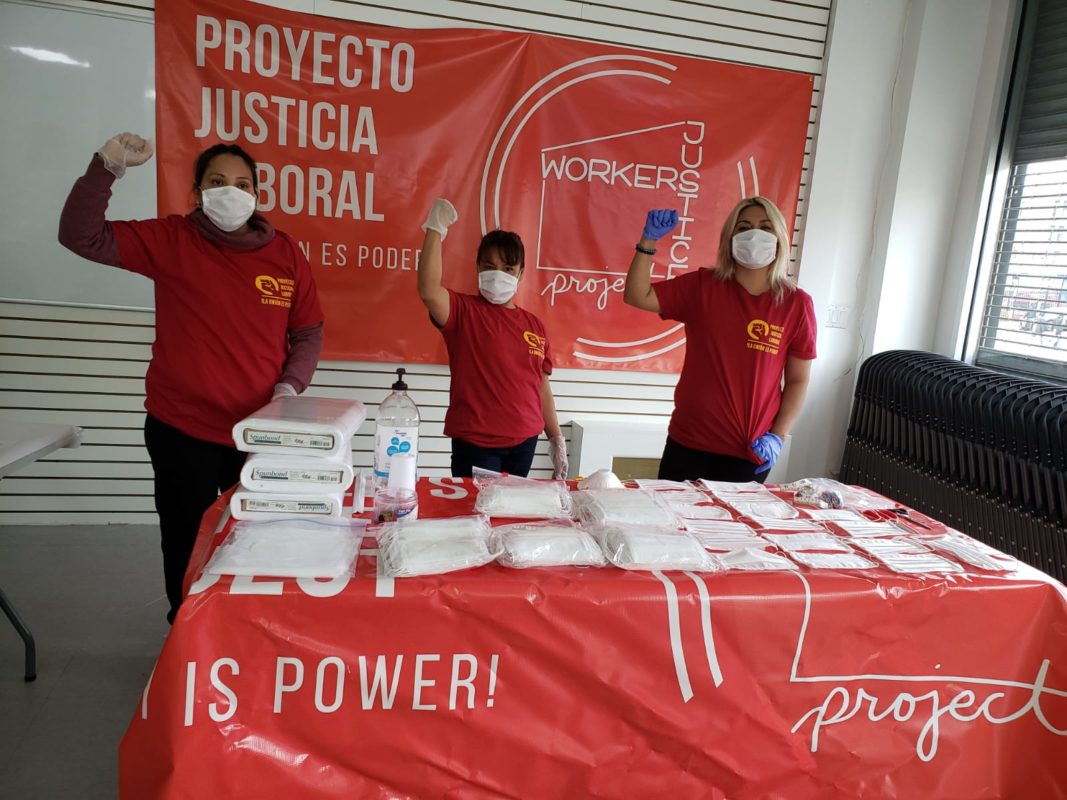
Analilia Leon is a domestic worker who lives in Bensonhurst. About five or six weeks ago, as the coronavirus pandemic began to shut down New York City, Leon’s employer told her to stay home as a precautionary measure. Since then, Leon hasn’t gone back to work. She’s not alone.
“One of the biggest things we are seeing with a lot of our members who happen to be day laborers, domestic workers, [and] restaurant workers is that the majority have gone without work [for weeks],” said Lilia Guallpa, executive director of the Worker’s Justice Project, a Brooklyn-based immigrant worker’s rights organization where Leon is a member.
“It’s really intense because the majority of us aren’t working,” said Leon, who’s originally from Veracruz, Mexico. We spoke with Leon in Spanish. “We don’t have any income – only what we bring home.”
Leon and a group of women from WPJ recently began making face masks as a way to help their fellow workers and to create a small source of income for themselves. These women are part of a women’s committee started at the WJP in Sunset Park late last year where they did skills training and provided mutual support to each other. “We were already working on a project for that [women’s committee], but then the pandemic happened,” Leon said. “And so we had the idea to make face masks for other people, and also to help ourselves.”
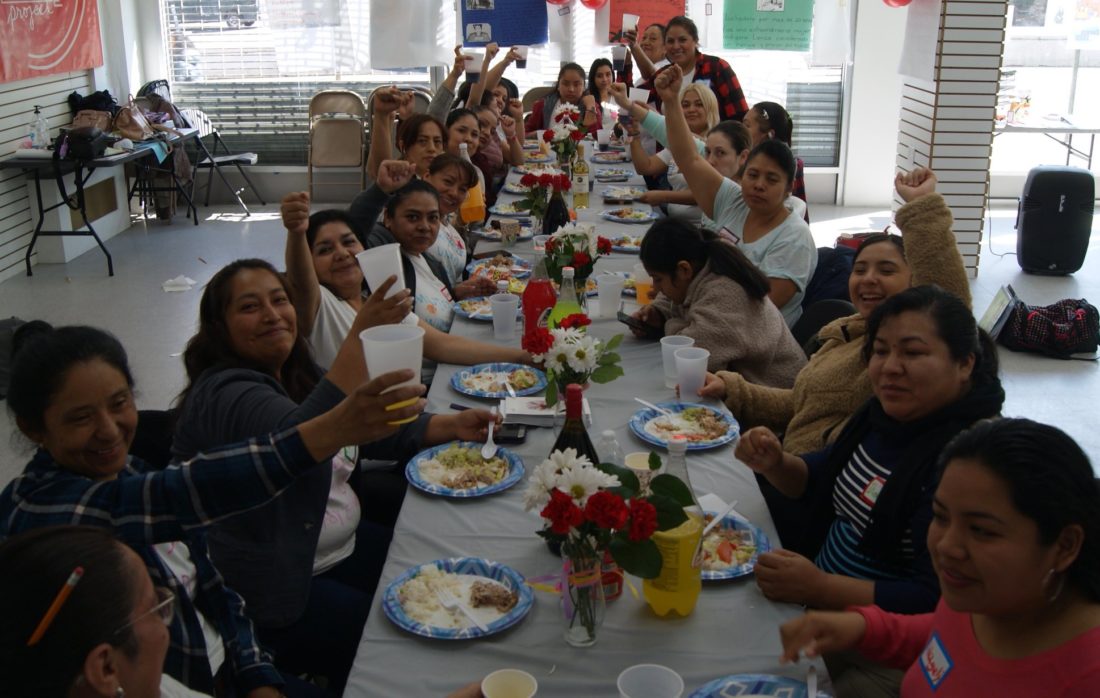
They’re delivering the masks to day laborers who are still on Brooklyn street corners looking for work. “Workers who are unemployed are still going out to the street corners to look for work because they have no other means of survival,” Guallpa said. “Staying home is a privilege, it’s not an option for them, and without any economic relief, they’re forced to go out on the street corners and put their life at risk. Many of them say to us, ‘If I don’t die from coronavirus, the lack of work will do the job,’” Guallpa laments.
Leon said the bills are piling up – “It’s hard for us because we aren’t working and we have to pay rent, pay the bills, you know, those things don’t wait around for anyone here.”
This week, NYC has introduced initiatives that may bring hope to undocumented immigrants in NYC. The city received a $20 million grant from the Open Societies Foundations to be used in the form of direct aid to immigrant and undocumented families. However, it is won’t be enough to help everyone; it’s estimated the fund will be able to help up to 20,000 undocumented individuals and their families, but in Brooklyn alone there are 127,000 undocumented immigrants according to the Mayor’s Office of Immigrant Affairs.
On Wednesday, the city council introduced a package of bills that will potentially expand paid sick leave to more New Yorkers and extend time for all renters to pay rent. However, last week, Governor Andrew Cuomo said he was not looking into the possibility of giving relief to undocumented workers during the coronavirus pandemic, which California has done.
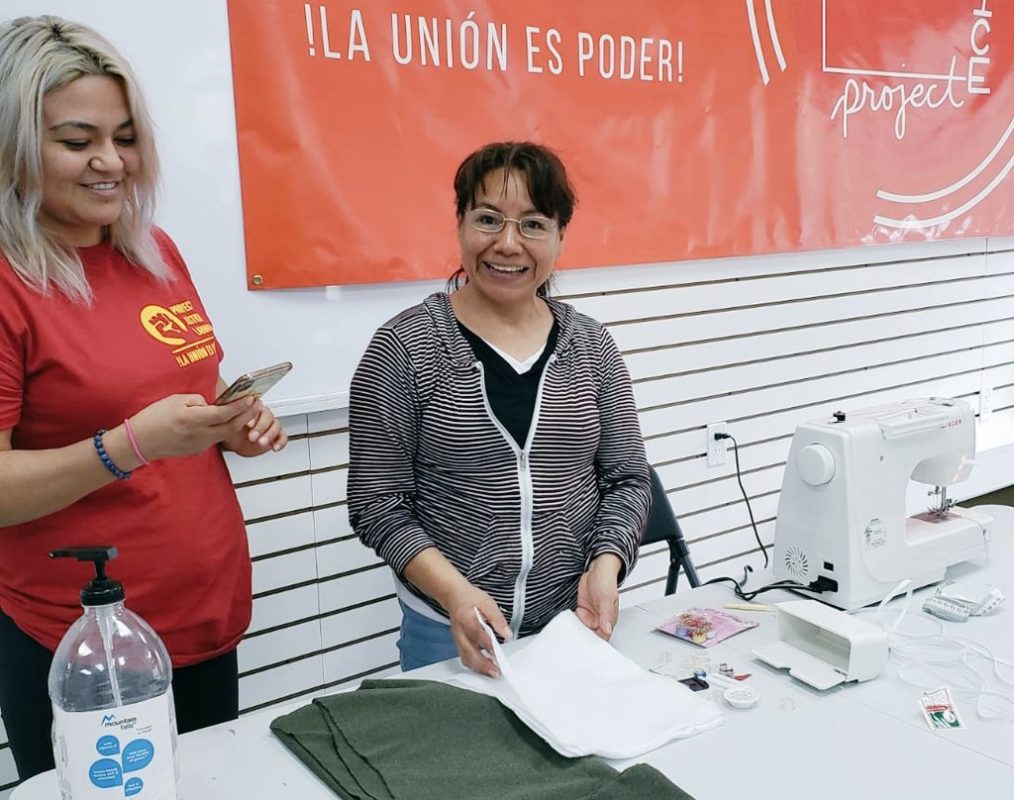
“The fact that day laborers, domestic workers have not been included in any debates about relief or direct cash assistance, leaves a lot of them in weeks of uncertainty and nowhere to turn because they don’t have that safety net other than their family members, or community organizations like WJP, who are doing a lot more than they can do to provide that safety net,” Guallpa said. “But it is not up to community organizations to do something. We need the local and state leaders to really adopt a workers and emergency plan to create a relief and ensure undocumented workers are not left behind.”
About 60% of the Worker’s Justice Project (WJP) 3,500 members live in Brooklyn, while the other 40% are in Queens and the Bronx. WJP has been surveying its members and said seven or eight out of 10 are unemployed. About 90% of them do not qualify for unemployment insurance because they are undocumented.
“We’re delivering food to a lot of our members who are sick. We are providing referrals, trying to find sites where they can get COVID testing or get them access to a doctor,” said Guallpa. “We’re also helping workers to file paid sick time leave cases from employers who are refusing.”
Leon’s fellow domestic worker and teammate on the mask project, Yesenia, who asked we not share her last name, is also out of work. She’s a single mother, and says she’s doing “double or triple the work” of what she normally would be. In addition to making face masks, she is helping her kids with school and taking care of the house.
“And then there’s this other situation,” Yesenia said, referring to the coronavirus pandemic. We spoke with Yesenia in Spanish. “This situation we’re living in is bringing about a lot of stress. All-day in the house, they’re stressed, and we’re stressed, and the economy is bad.”
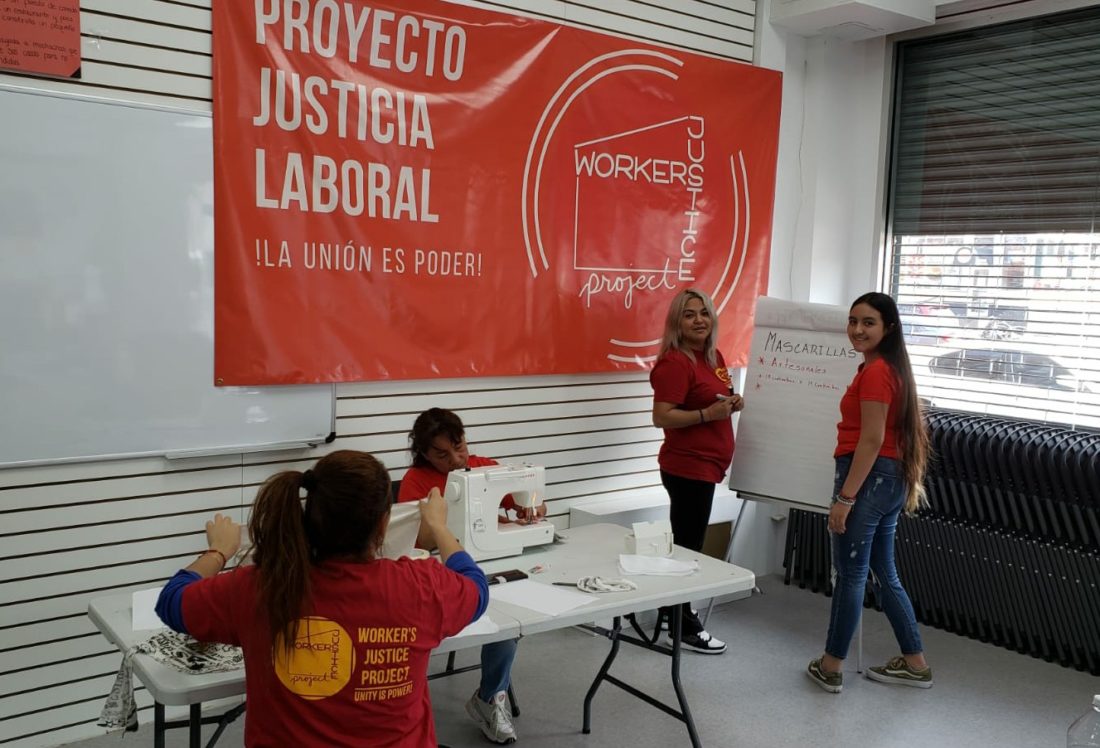
Two members of the WJP organization are hospitalized with the virus, and Guallpa says many more she knows have been turned away from the hospitals and are unable to access tests.
Leon’s husband’s brother passed away less than a week ago, also in Brooklyn. He was rushed to the hospital in an ambulance and died at the hospital without any family members present. She suspects it was from coronavirus, but the hospital has yet to give them any information. “My sister-in-law and their children, no one was able to say goodbye to him,” Leon said.
“It’s really hard for us also not to be able to go to their house either, and say you know, ‘I’m sorry for your loss. This happened but we’re here with you, helping you stay strong, and you can count on us,” Leon said. “But that’s the situation that’s happening right now. We can’t be close to the people we love, at their side. In another situation we would have all been together at the hospital, giving him encouragement.”
“You never think that it’s going to happen to you,” Leon said.
The WJP’s Jornalera COVID-19 Relief Fund is accepting donations that will go directly to assistance for their most vulnerable members, particularly women and aging laborers. You can donate here.



